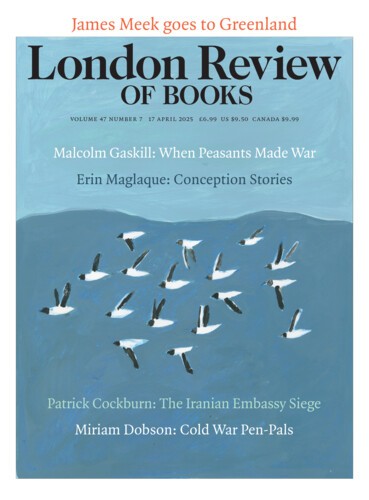Chimpanzees, New Caledonian crows – and now cows. The list of animals that use tools grew a little longer this week, with a paper in Current Biology reporting that an Austrian cow called Veronika uses a broom to scratch herself. Appealing to tool use as a defining feature of humanity has always been a shaky argument, though a curiously persistent one.
Liam Shaw
Liam Shaw is a Wellcome-funded research fellow at the MacLean Lab in Oxford, researching bacterial genetics. He is writing a book about the history of antibiotics.
Streptomycetes are soil bacteria that could easily be mistaken for fungi, their cells snaking through the earth in long threads that resemble mycelial networks. To propagate when their survival is threatened, they break through the earth’s surface and then cannibalise themselves, using their last resources to build aerial platforms that release spores into the atmosphere to be carried away on the wind. Streptomycetes also produce a bonanza of antibiotics.
Who needs smoothies? Hold on to your teeth
Liam Shaw, 17 April 2025
The pain of toothache arrives long after the damage has been done. The process begins when bacteria in the mouth turn sugars from our food into acid, which etches the tooth’s enamel, allowing the bacteria to penetrate further. Only when they hit the nerve bundles at the tooth’s pulpy core does the sufferer become aware – all too painfully aware – of their...
Robert Schumann’s teenage ambitions of virtuosity were undone by the onset of debilitating pain in his right hand. ‘It came to such a point that whenever I had to move my fourth finger, my whole body would twist convulsively,’ he wrote to a friend. Trying to make his fingers stronger he experimented with mechanical devices that probably banjaxed them irreparably. A new paper in Science Robotics reports a device that Schumann would have jumped at the chance to try: a robotic exoskeleton for the hand.
While normal life must compete with a whole ecosystem, a mirror bacterium might behave like the only real thing in a world of phantom reflections. Normal organisms are kept in check by an ecological balance between their death and growth rate. But without any predators, mirror bacteria that escaped a laboratory might grow exponentially, even with a lower growth rate than normal bacteria.
Read anywhere with the London Review of Books app, available now from the App Store for Apple devices, Google Play for Android devices and Amazon for your Kindle Fire.
Sign up to our newsletter
For highlights from the latest issue, our archive and the blog, as well as news, events and exclusive promotions.


